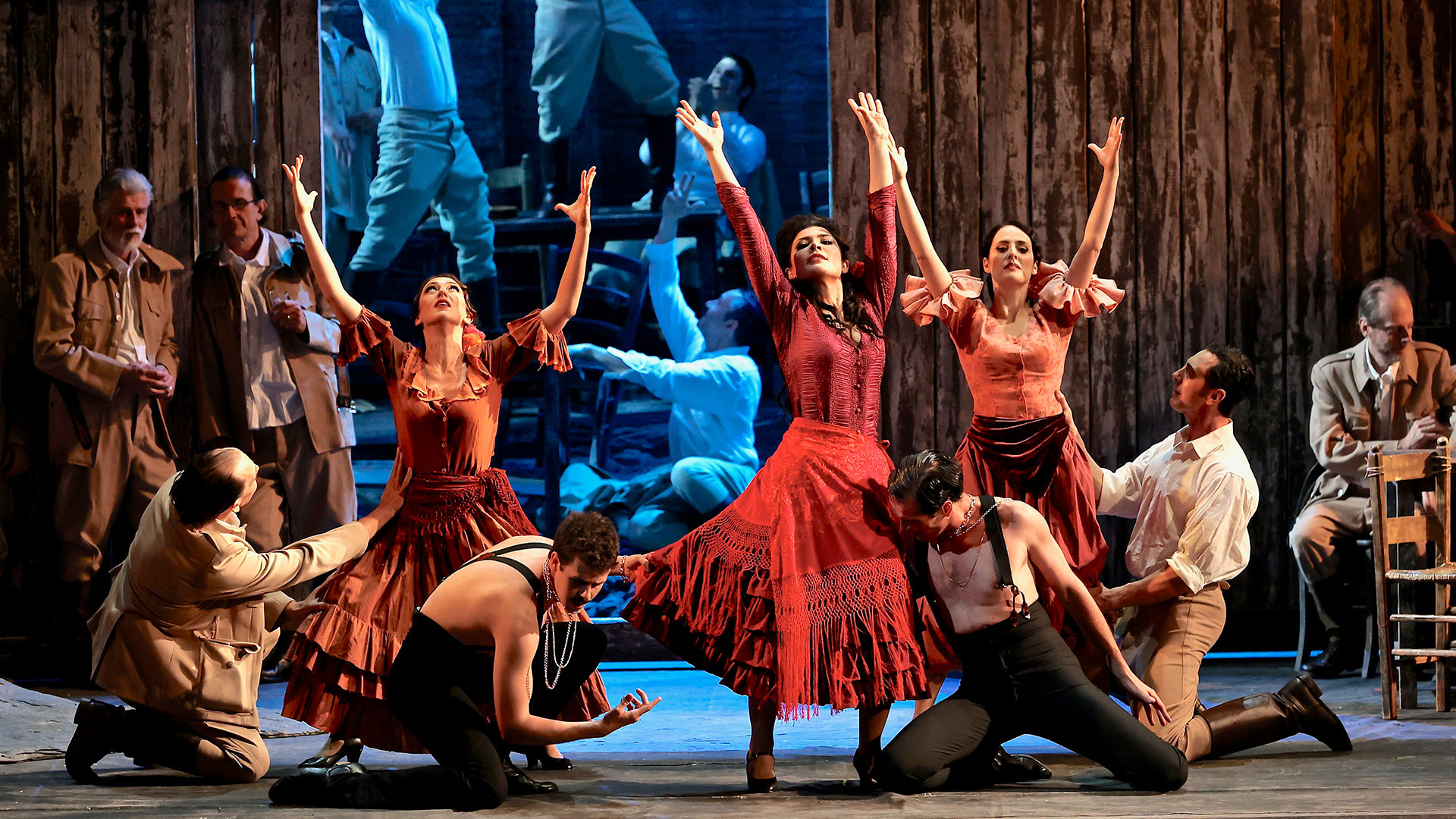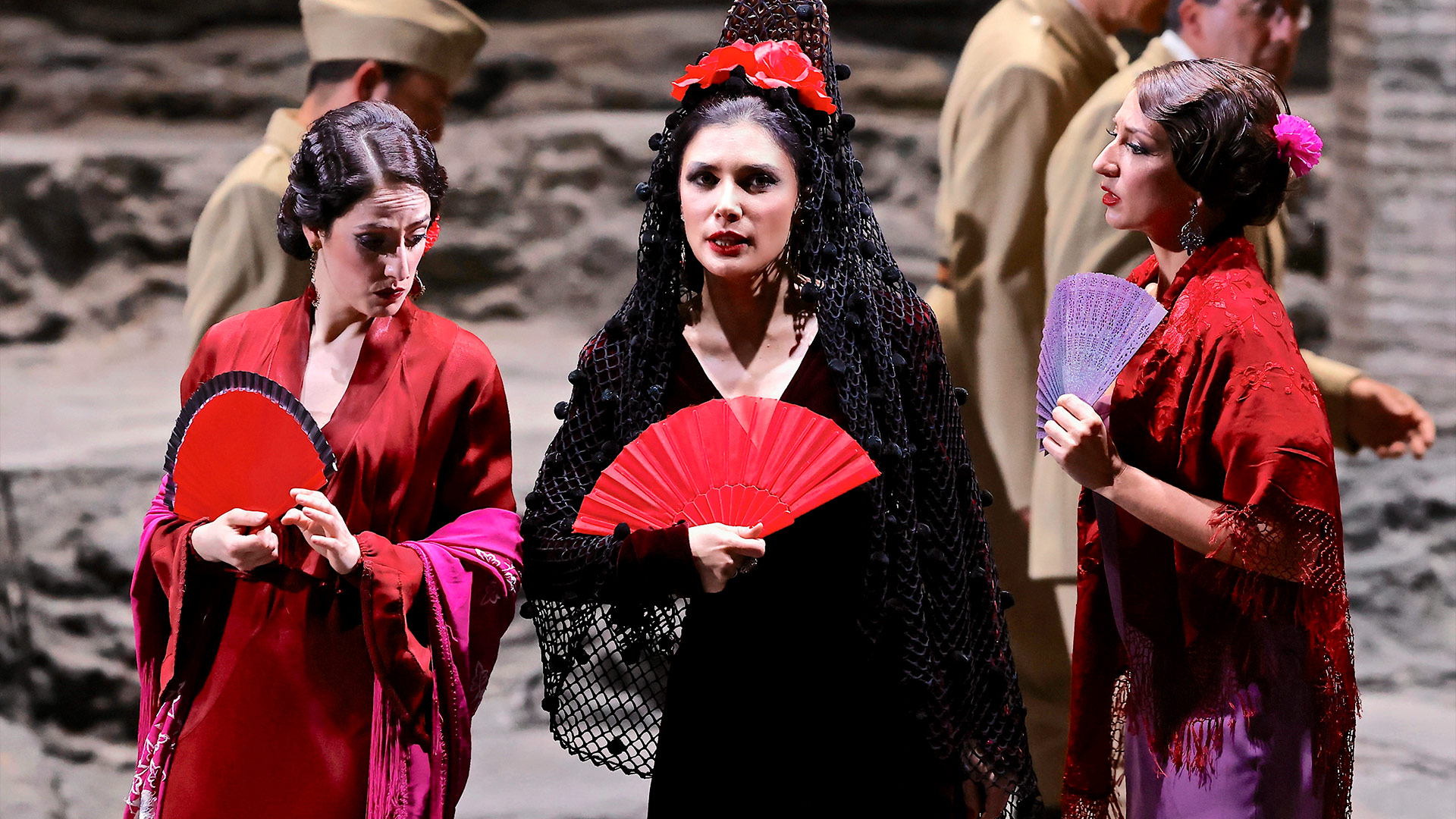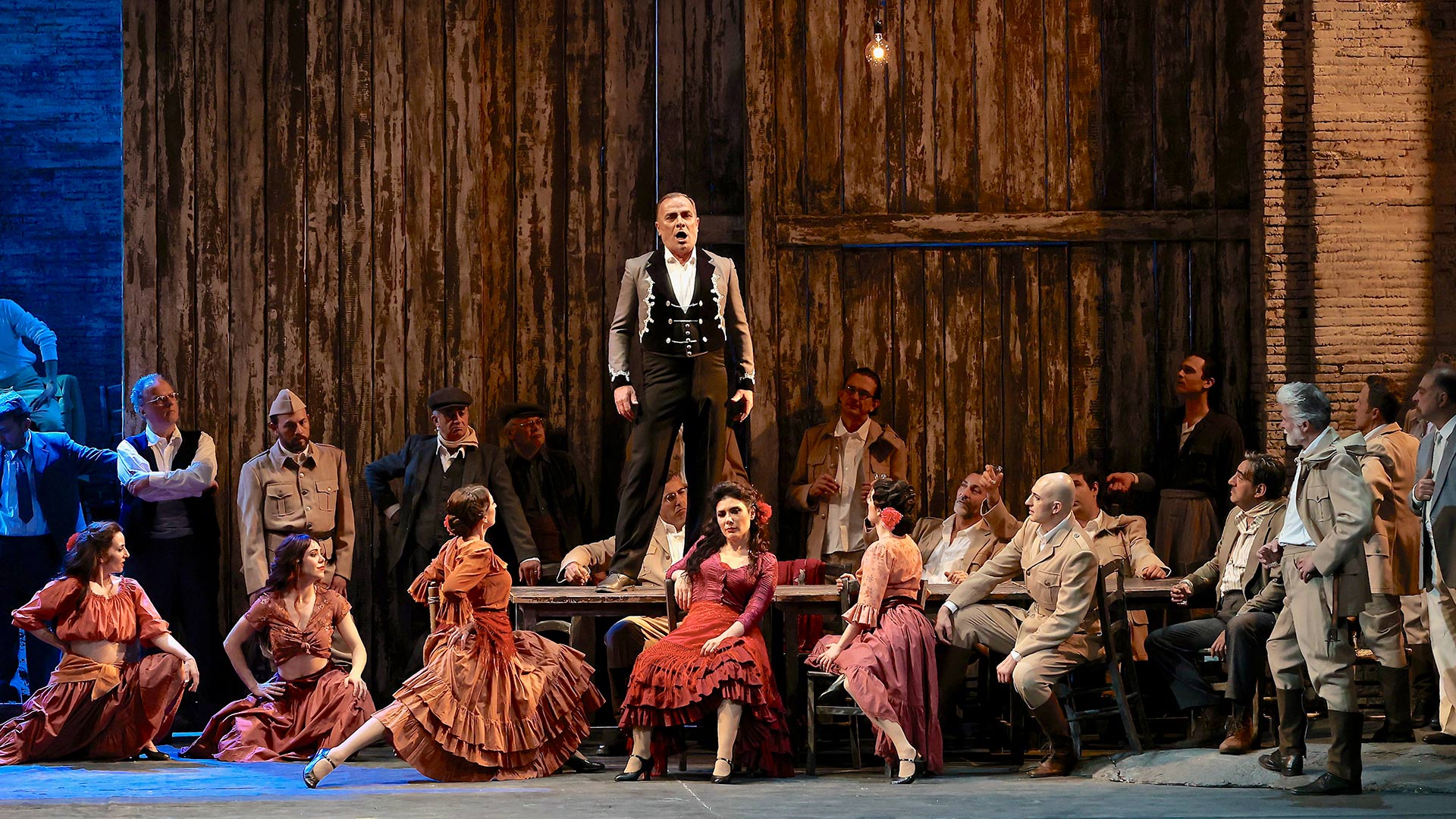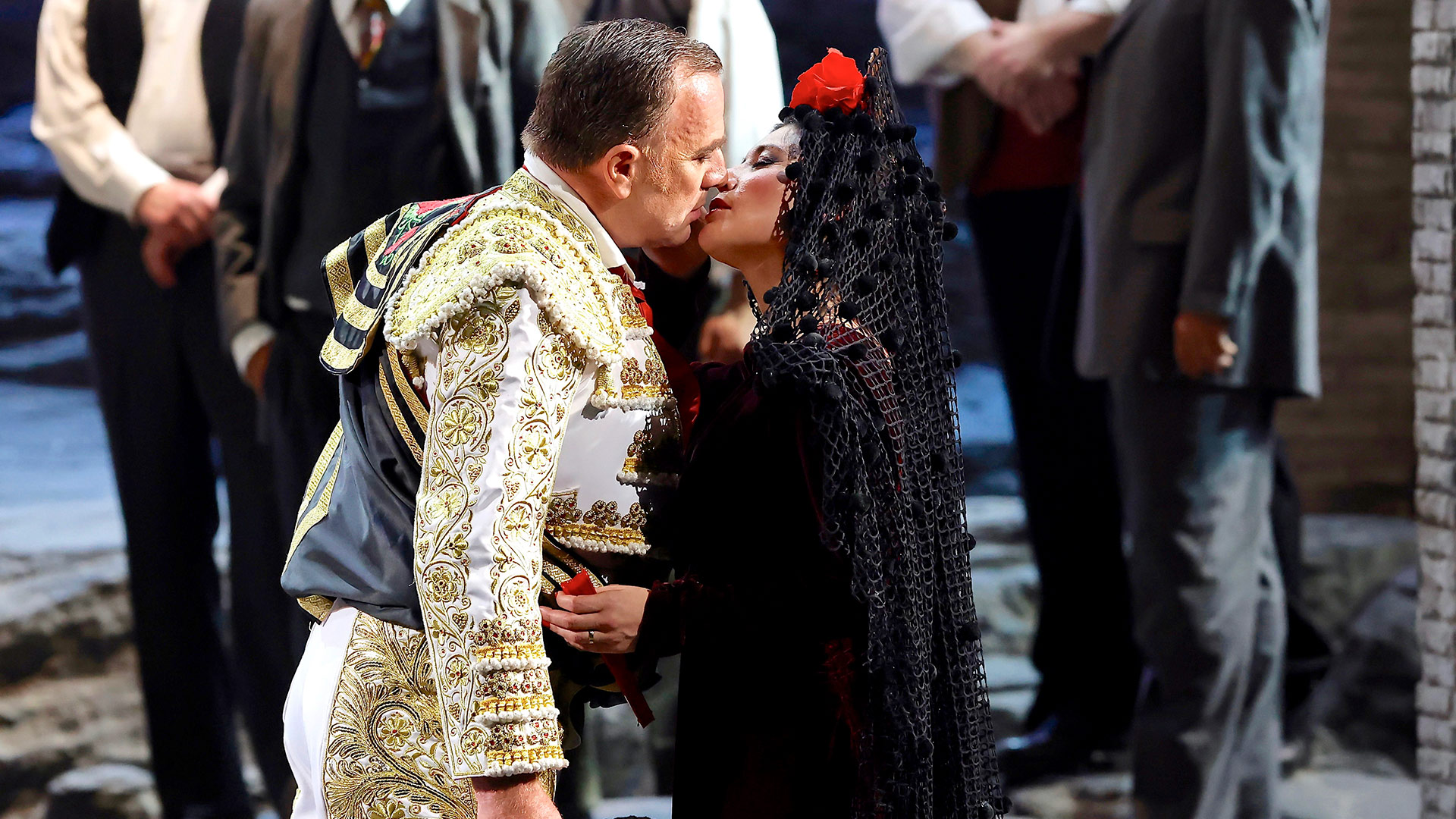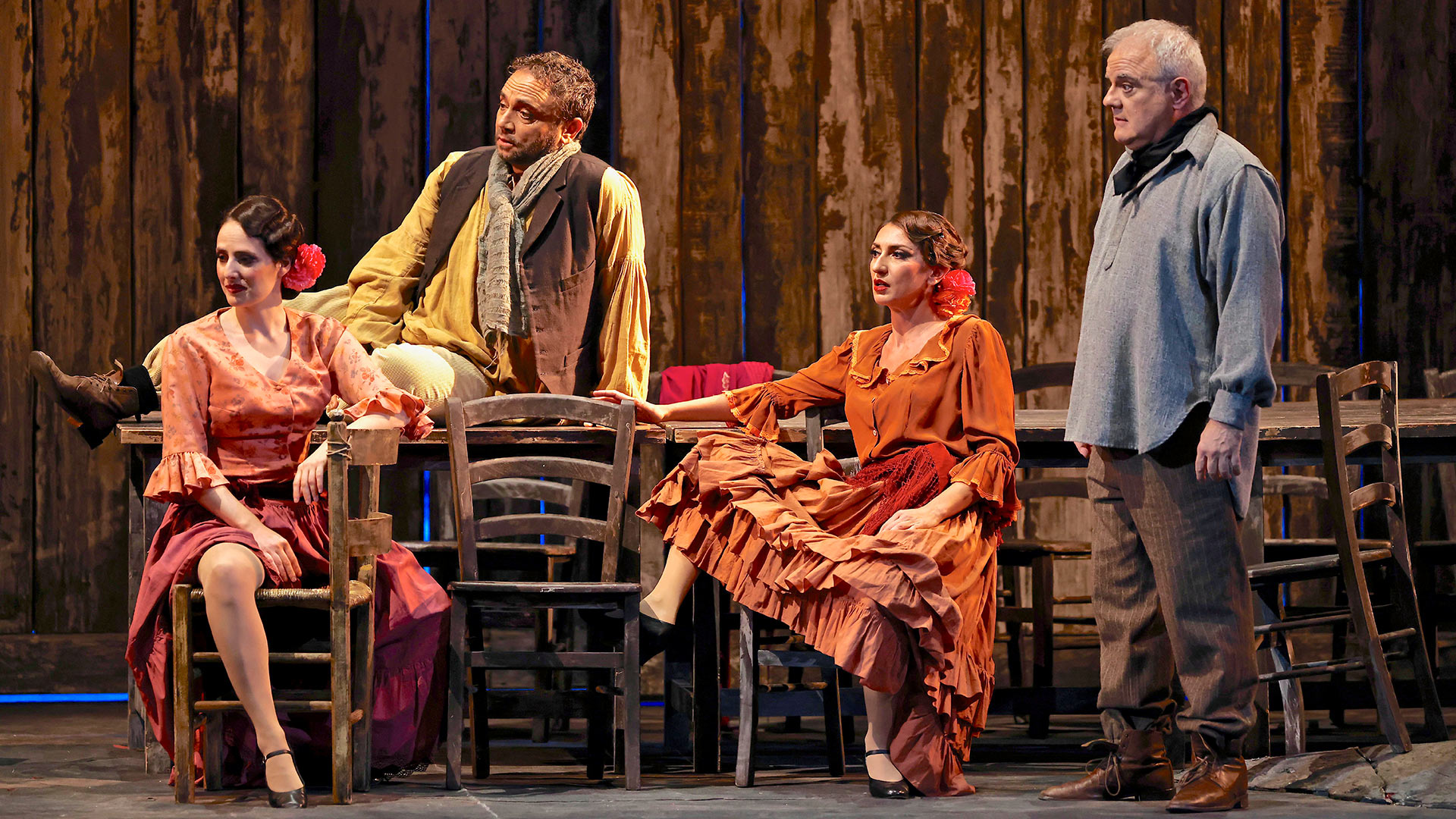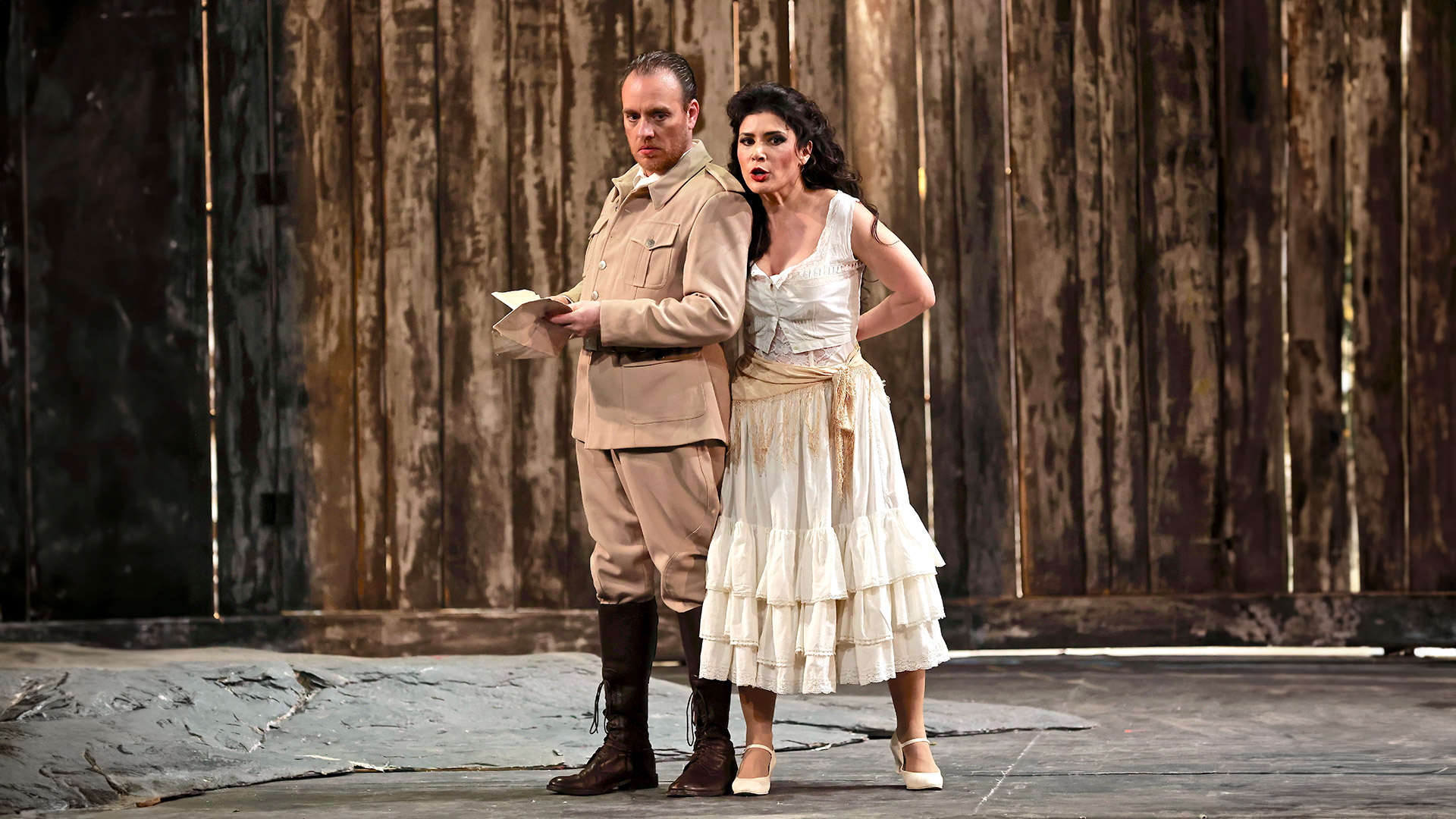Opéra-comique in four acts by Georges Bizet, libretto by Henri Meilhac and Ludovic Halévy, based on the novella by Prosper Mérimée
Staging by the Fondazione Teatro dell’Opera di Roma
Main characters and performers:
Don Josè
Francesco Meli (16, 18, 23, 25)
Amadi Lagha (17, 24)
Escamillo
Luca Tittoto
Abramo Rosalen (17, 24)
Le Dancaire
Armando Gabba
Le Remendado
Saverio Fiore
Morales
Paolo Ingrasciotta
Zuniga
Luca Dall’Amico
Carmen
Annalisa Stroppa
Caterina Piva (17,24)
Micaela
Giuliana Gianfaldoni
Angela Nisi (17,24)
Frasquita
Vittoriana De Amicis
Mercedes
Alessandra Della Croce
Concertmaster and conductor
Donato Renzetti
Director
Emilio Sagi
taken from
Nuria Castejón
Scenes
Daniel Bianco
Costumes
Renata Schussheim
Choreography
Nuria Castejón
Lighting
Eduardo Bravo
Orchestra, Chorus, Children’s Chorus and Technicians of the Opera Carlo Felice Genova
Choirmaster Claudio Marino Moretti
Master of the Children’s Choir Gino Tanasini
Carmen by Georges Bizet is an opéra-comique in four acts with a libretto by Henri Meilhac and Ludovic Halévy, based on the 1845 novella of the same name by Prosper Mérimée. It was composed between 1874 and 1875 for the Opéra-Comique in Paris, where Bizet himself oversaw the preparation of the staging during the months of rehearsals, continuing to rework the score until its premiere on 3 March 1875. The production continued afterwards, and the composer produced a version without the canonical spoken/recited sections of the opéra-comique in view of a Viennese staging, where the genre was little frequented, replacing the spoken parts with recitatives. The 1877 edition, which is the most represented today, sticks to the ‘Viennese variant’. The adaptation of the novella saw several changes, including the introduction of the character of Micaela and the greater prominence given to the bullfighter Escamillo. The story takes place in Seville around 1820, where the soldier Don José is seduced by the gypsy Carmen, moving away from his world and approaching hers in a spiral of jealousy and lawlessness that will lead him to kill her and finally hand himself over to the gendarmes. The seductive power of the protagonist constitutes the fulcrum around which the other characters move, and will also be the reason for her tragic fate. Carmen is a free, voluptuous but determined heroine, deeply insubordinate to any imposition. Bizet uses various compositional devices that together make Carmen a decidedly up-to-date and contemporary opéra-comique, with references to the innovations of Verdi, Wagner and Italian verismo.
